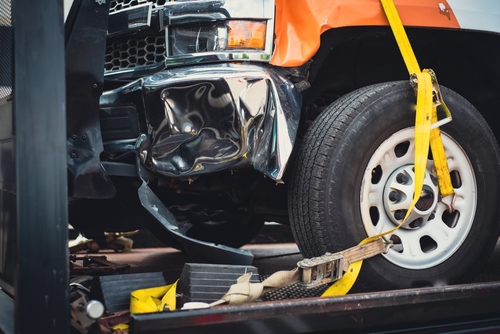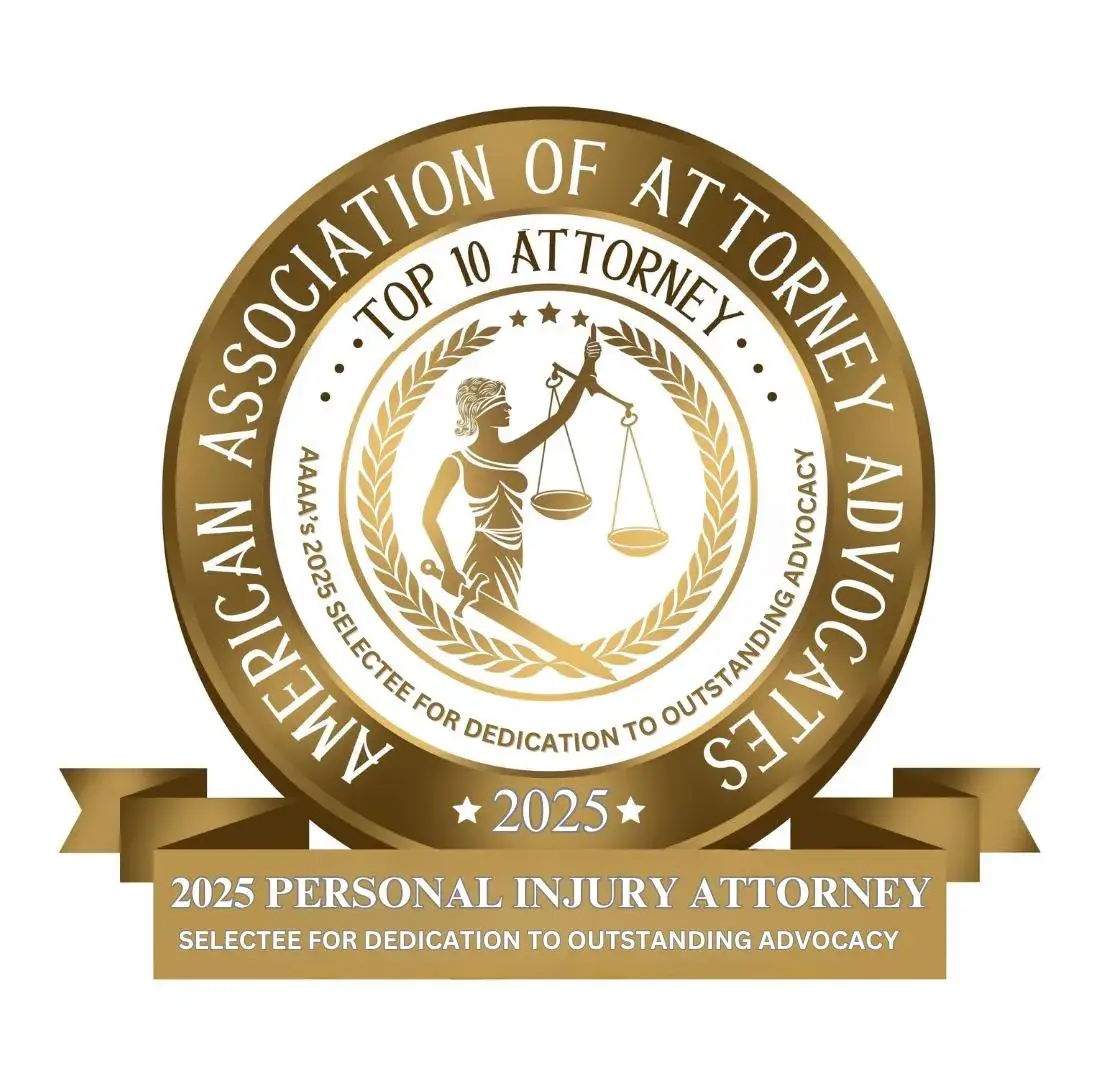
What Happens If You’re Partly at Fault in a Bergen County Trucking Wreck?
Being partially at fault does not automatically prevent you from recovering compensation. Under New Jersey’s modified comparative negligence law, you can still receive money for your injuries, as long as you were not more than 50% responsible for the crash. However, your recovery will be reduced by your share of the fault.
Trucking companies know this rule well, and they use it to their advantage. Their insurers will look for any reason to shift blame onto you, even if only slightly, because every percentage point reduces what they owe. Their investigators act quickly, building a case from day one to minimize their exposure. Working with a Bergen County truck accident lawyer early in the process helps counter these tactics and protects your right to full compensation.
This is why your response must be just as strong. A thorough investigation might uncover evidence that shows the truck driver or their employer was the primary cause of the crash. This may include dash cam footage, driver logs, or maintenance violations.
If you’re unsure how your actions might affect your claim, don’t assume the worst. Let our team evaluate the facts and help you protect your rights. Call Maggiano, DiGirolamo & Lizzi, P.C. at (201) 585-9111 for a confidential, no-obligation case review.
Key Takeaways for Bergen County Shared-Fault Truck Wrecks
- New Jersey’s law allows recovery if you are 50% or less at fault. Your final compensation is reduced by your percentage of blame, but you are not barred from recovery unless you are found mostly responsible.
- The percentage of fault is determined by evidence, not opinions. An independent investigation is essential to gather facts from the truck’s black box, witness statements, and expert analysis to counter the insurance company’s narrative.
- Common actions like speeding or distraction do not automatically ruin your claim. The conduct of the professional truck driver is held to a higher standard, and a detailed analysis frequently shows their actions were the primary cause of the wreck.
How Does New Jersey Law View Shared Fault in an Accident?
After a serious truck wreck, it’s natural to replay the event in your mind. You might worry that because you were changing lanes, momentarily distracted, or slightly over the speed limit on a familiar road, you have no right to compensation. This worry is something the trucking company’s insurer may use to their advantage. Hire a truck accident lawyer to investigate the crash, gather evidence, and protect your right to fair compensation.
They understand that the claim process is long, tedious, and filled with paperwork. As your medical bills start to arrive and you’re unable to work, the pressure mounts. It becomes easy to get frustrated and accept a low offer, or worse, give up entirely because you believe you are partly to blame. But New Jersey law provides a specific path forward in these situations.
The state uses a system called the “modified comparative negligence rule.” Think of blame as a pie chart representing 100% of the fault for the accident. As long as your slice of that pie is 50% or smaller, you are eligible to receive financial compensation for your injuries and other losses.
The 51% Bar
If a jury or judge finds that you were 51% or more responsible for the wreck, the law bars you from recovering any money at all. This is also called the “51% bar rule,” and it makes the percentage of fault the single most important factor in your case. Our role is to ensure that no amount of blame is unfairly placed on you. We meticulously gather the evidence to present a clear and accurate picture of how the accident truly happened.
What Does This Mean for Your Compensation?
Your final compensation award is reduced by your exact percentage of fault. A few percentage points one way or the other change the outcome of your case significantly, so every single percentage point matters.
How Is Fault Determined in a Bergen County Truck Wreck?
The determination of what happens if you’re partly at fault in a Bergen County trucking wreck depends entirely on the strength of this evidence. Here are some of the key pieces we analyze: steps to take after a truck crash include seeking immediate medical attention, preserving evidence like photos and witness details, and consulting an experienced lawyer to protect your claim.
- The Police Report: This is a starting point, but the responding officer’s initial assessment is not the final word on liability. It’s just one piece of a much larger puzzle.
- The Truck’s “Black Box”: Commercial trucks are equipped with an Electronic Logging Device (ELD) and an Electronic Control Module (ECM). These devices record a wealth of data, including the truck’s speed, braking history, and the driver’s hours of service. We act quickly to send a spoliation letter, which is a legal demand that the trucking company preserve all of this electronic data and other evidence. This data shows if a trucker was speeding to make a delivery in Hackensack or was driving fatigued after a long haul on the New Jersey Turnpike.
- Federal Regulations: We examine whether the driver and trucking company complied with regulations from the Federal Motor Carrier Safety Administration (FMCSA). This includes reviewing driver qualification files, vehicle maintenance records, and drug and alcohol testing protocols. A violation of these federal safety rules is strong evidence of negligence.
- Witness Statements: We locate and interview anyone who saw the crash. From a resident in Englewood Cliffs to a commuter in Little Ferry, independent witnesses provide an unbiased account of what happened, free from the interests of either party.
- Scene and Vehicle Evidence: We may bring in accident reconstruction professionals to analyze skid marks, vehicle damage, and roadway conditions. Whether the crash occurred on a busy local road like Route 4 or a quieter street in Palisades Park, the physical evidence tells a story that we piece together.
Common Reasons You Might Be Found Partially At Fault (And How We Address Them)
Many drivers we speak with worry that a simple mistake automatically ruins their case. It rarely does. An error made by a professional truck driver typically carries far more weight in a fault analysis. This is because truckers are held to a higher standard of care due to the size of their vehicles and their extensive training. Causes of truck accidents such as driver fatigue, distracted driving, improper maintenance, or overloaded cargo often play a much larger role in determining responsibility.
You were speeding.
- The Insurer’s Argument: “You were driving over the speed limit, so you contributed to the crash.”
- Our Investigation: We look deeper. Was the truck driver also speeding? Did the trucker make an unsafe lane change that gave you no time to react, regardless of your speed? Was the trucker fatigued and slow to respond to changing traffic conditions? Your speed may have been a factor in the collision, but it might not have been the primary cause.
You were distracted.
- The Insurer’s Argument: “You were changing the radio station, so you weren’t paying attention.”
- Our Investigation: We review the trucker’s logs and cell phone records. The FMCSA has very strict rules about distracted driving for commercial operators. Using a handheld device is prohibited. A moment of your inattention is very different from a professional driver engaging in federally prohibited behavior. This distinction significantly shifts the percentages of fault.
You received a ticket.
- Your Fear: “The police gave me a ticket at the scene, so the accident must be my fault.”
- The Reality: A traffic ticket is not a final verdict of fault in a civil personal injury claim. We frequently challenge the conclusions of a police report. The standard of proof required to issue a traffic ticket is different from the standard for proving negligence in a personal injury case. An attorney explains this difference and builds a case based on all the evidence, not just the ticket.
Insurance Coverage Complications: When Multiple Policies Fight Over Responsibility

When fault is shared between you and a truck driver, multiple insurance companies become involved, creating coverage disputes that delay your compensation and complicate settlement negotiations. After a truck accident, having a lawyer manage these overlapping claims helps protect your rights and keeps the process moving toward a fair settlement.
Multiple Policy Coordination Creates Coverage Gaps
Shared fault scenarios activate several insurance policies simultaneously, including the truck driver’s personal coverage, the trucking company’s commercial policy, and potentially your own auto insurance. These different insurers often dispute which policy should provide primary coverage, with each company attempting to minimize their financial responsibility by arguing another policy should pay first.
Commercial trucking policies frequently contain “other insurance” clauses that attempt to make other parties’ insurance primary when shared fault exists. Some policies exclude coverage entirely when drivers share fault with commercial vehicles, while others reduce coverage amounts based on fault percentages. These policy interactions create situations where injured parties fall between coverage gaps while insurance companies resolve their disputes. What you need to know is that these clauses can delay or reduce your recovery, making early legal intervention critical.
Strategic Settlement Timing Affects Recovery Amounts
The order of settlement negotiations matters significantly when multiple parties share fault because settling with one party may affect your claims against others. New Jersey’s legal rules sometimes allow parties with larger insurance policies to pay more than their fault percentage when other responsible parties lack adequate coverage, making the timing of settlement discussions strategically important. Sue for in a truck accident claims can become complex, so careful planning and legal guidance are essential to protect your right to full compensation.
Some insurers become more willing to negotiate favorable settlements when they face potential coverage disputes with other policies, while others fight more aggressively to limit their exposure when shared fault complicates their coverage obligations.
Personal Insurance Considerations
Your own auto insurance may provide additional coverage through uninsured/underinsured motorist benefits when trucking companies or drivers lack adequate coverage for their fault percentage.
However, these benefits may be reduced if your insurance company argues you contributed to the accident, making fault percentage determination equally important for accessing your own coverage.
Frequently Asked Questions About Shared-Fault Truck Accidents
Does the two-year deadline to file a lawsuit change if I’m partly at fault?
No. The New Jersey statute of limitations remains the same. You generally have two years from the date of the wreck to file a lawsuit, regardless of how fault is shared. Waiting to act jeopardizes your ability to recover compensation.
What if multiple vehicles were involved?
In a multi-vehicle pile-up, which sometimes happens on congested Bergen County highways, fault is distributed among several drivers. New Jersey law allows for this, and your percentage of fault will be determined relative to everyone involved in the crash.
I live in Fort Lee, where there is a lot of traffic congestion. Does that impact my case?
Heavy traffic conditions, common in communities like Fort Lee, Edgewater, and Teaneck, are a known factor. All drivers, and especially professional truckers, have a duty to operate their vehicles safely for the given conditions. Congestion never excuses a trucker for tailgating, making a reckless lane change, or failing to keep a proper lookout.
Should I talk to the trucking company’s insurance adjuster?
Avoid giving a recorded statement to the other party’s insurer before speaking with a lawyer. These adjusters are trained to ask questions that may lead you to unintentionally accept more blame than is appropriate. A simple, polite “I am not prepared to give a statement at this time” is all you need to say. Let your attorney handle communications with them.
What if I don't think I was at fault at all, but they are blaming me?
Alleging that the injured person is also at fault is a standard tactic used to try and reduce the value of a claim. This is why a thorough, independent investigation is necessary to uncover the truth and protect your rights.
Don’t Let an Allegation of Fault Keep You From Seeking Help

Being partly at fault for a truck accident in Bergen County does not automatically close the door on your right to compensation. The percentage of fault is a legal conclusion based on evidence, and you have the right to present your side of the story, supported by a strong investigation.
Let us handle the investigation and protect you from being assigned unfair blame. Call Maggiano, DiGirolamo & Lizzi, P.C. at (201) 585-9111 today to discuss what happened.



















